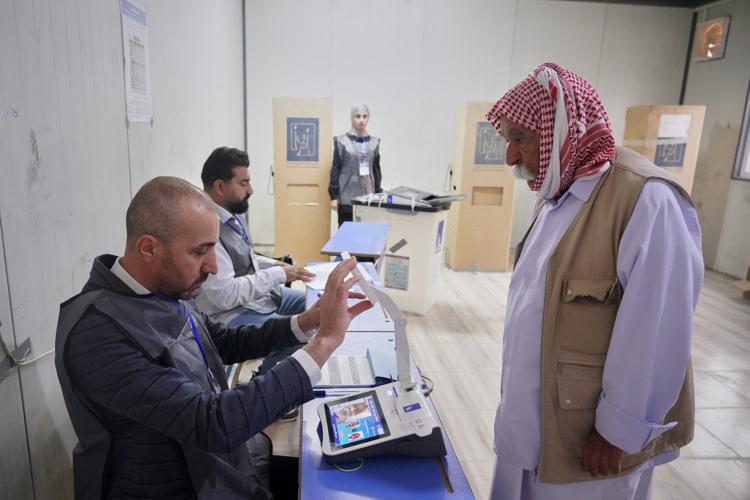Members of the Iraqi security forces and displaced individuals, notably from the Yazidi minority, participated in early voting on March 5, 2024, ahead of this week’s parliamentary elections in Iraq. This election is critical as it could determine whether Prime Minister Mohammed Shia al-Sudani secures a second term. The context includes escalating tensions between Israel and Iran, alongside Iraq’s delicate relationship with both nations.
Voting Amid Challenges for Displaced Communities
An estimated 1.3 million army and security personnel, along with around 26,000 displaced people, are eligible to cast their votes. The election features 7,744 candidates, predominantly from sectarian-aligned parties. The main election day is scheduled for March 7, 2024.
Many Yazidis, who fled their homes over a decade ago following brutal attacks by the Islamic State group, voted at a polling station in a camp near Dohuk, located in the semi-autonomous Kurdish region. Despite some returning to Sinjar, many Yazidis remain unable to go back due to political disputes and inadequate infrastructure.
The polling station, set up in a local school, remained nearly empty until after 09:00 when more voters arrived. Some carried worn identification cards while others assisted elderly relatives into the building. Inside, classrooms were filled with monitors from various political parties, each vying for influence.
Disillusionment and Political Dynamics
During its offensive, IS militants devastated the Sinjar district in Nineveh province, killing and enslaving thousands of Yazidis. Although the group has been defeated, the community continues to face significant hurdles. Many displaced individuals express skepticism about the potential for change.
“Eleven years passed and the situation is the same,” said Khedhir Qassim, a displaced Yazidi from Sinjar. “We want them to support us and rebuild our areas that are ruined due to their political dispute.”
Another Yazidi voter, Edris Zozani, expressed his support for the Kurdish Democratic Party (KDP), one of the dominant Kurdish parties in Iraq. He believes that independent Yazidi candidates would struggle to advocate effectively for their community without the backing of a larger political entity.
In Baghdad, members of the Iraqi military and police, along with the Popular Mobilization Forces (PMF)—a coalition of predominantly Shiite, Iran-backed militias—also participated in early voting. The PMF has been integrated into Iraq’s military since 2016, yet retains considerable autonomy.
The future of the PMF presents a complex challenge for the incoming parliament, particularly amid ongoing tensions between Baghdad and Washington regarding Iran’s influence in Iraq. Some factions within the PMF have associated political parties that are competing in the elections.
“I voted for the list that defends the PMF,” said one militiaman after voting in Baghdad, requesting anonymity due to restrictions on speaking to the media.
The results of this election could significantly impact Iraq’s political landscape and the ongoing struggles of its diverse communities, particularly those still grappling with the aftermath of conflict and displacement. The political landscape remains fluid, with the potential for further developments as the nation approaches the main voting day.
